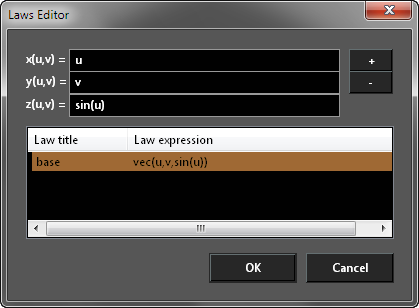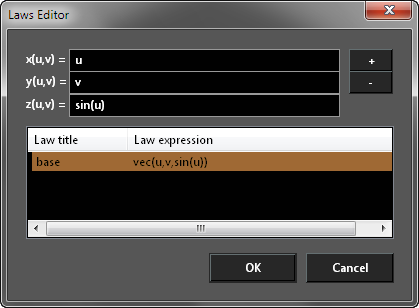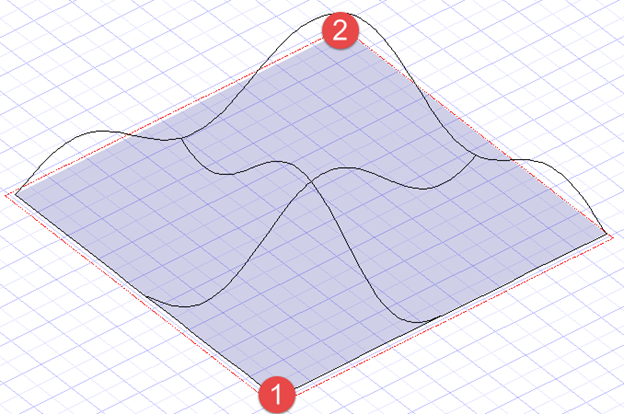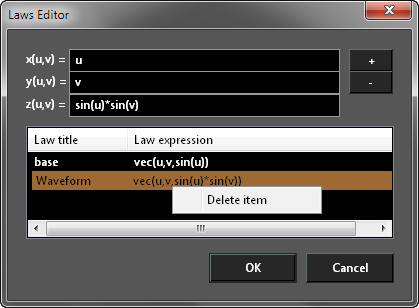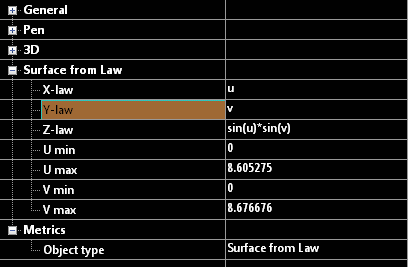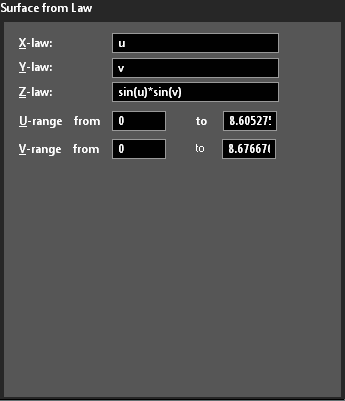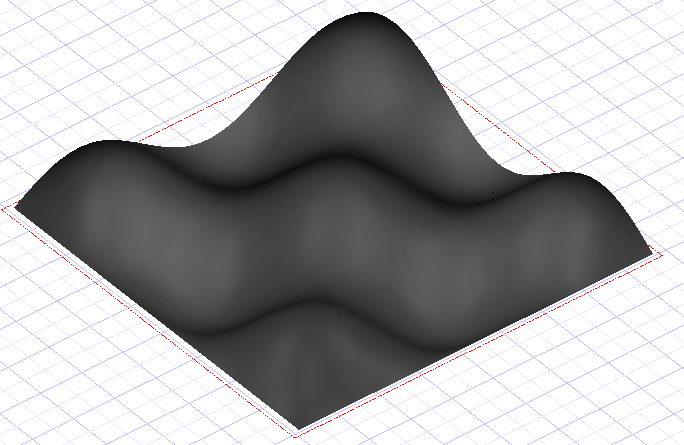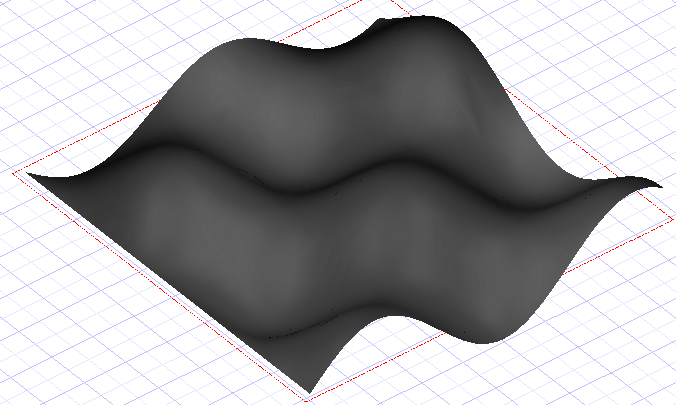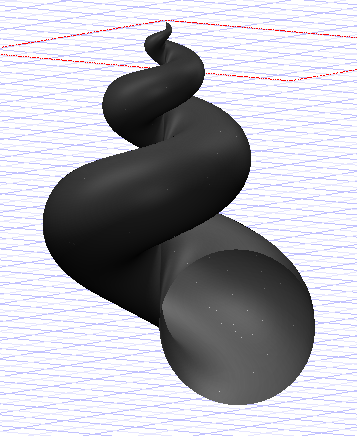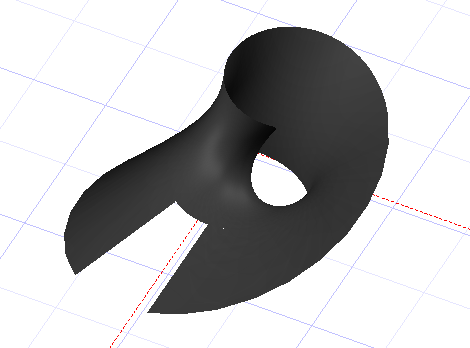Surface from Laws
Available in TurboCAD Pro Platinum only
This tool creates an open surface using Laws.
Laws are mathematical functions in the form of a formula. They are used to define how resulting objects are modified.
They are composed and selected in the Laws Editor which is specific to each tool that uses laws and can be opened from that tool.
To use a the Surface from Laws tool:
- Select the tool. The Laws Editor opens.
- Select the desired law in the Laws table by double-clicking and press OK. The law that is applied is what is in the formula field.
To create a law:
- Type the desired formulas into the formula fields.
- Press the + (plus) button.
- Type in a titke for the law and press OK.
The new law will appear in the Laws table
To Delete a law:
- Open the Laws Editor.
- Click on the Law in the Laws table to select it.
- Right click and select Delete, or press the - (minus) button.
Laws cannot be edited but double click a law will load it into the Formula fields where it can be altered and then a new altered law added.
Editing a Surface by Law
The values for a Surface by law can be edited via the Selection Info palette or by the object properties.
x(u,v) y(u,v) z(u,v)
In the Offset tool the functions are defined as a function of U and V. Where U is the distance along the x-axis of the object and V is the distance along the y-axis of the object.
Setting x(u,v)=u, y(u,v)=v, z(u,v)=sin(u)*sin(v), U min = 0, U max = 9, V min = 0, V max = 9
Setting x(u,v)=u, y(u,v)=v, z(u,v)=sin(u)*cos(v), U min = 0, U max = 9, V min = 0, V max = 9
Setting:
x(u)=2*(1-exp(u/(6*pi)))*cos(u)*cos(v/2)^2
y(u)=2*(-1+exp(u/(6*pi)))*sin(u)*cos(v/2)^2
z(u)=1-exp(u/(3*pi))-sin(v)+exp(u/(6*pi))*sin(v)
U min = 0, U max = 20, V min = 0, V max = 6.283185
Setting:
x(u)=(1+v/2*cos(u/2))*cos(u)
y(u)=(1+v/2*cos(u/2))*sin(u)
z(u)=v/2*sin(u/2)
U min = 0, U max = 12, V min = 0, V max = 3
